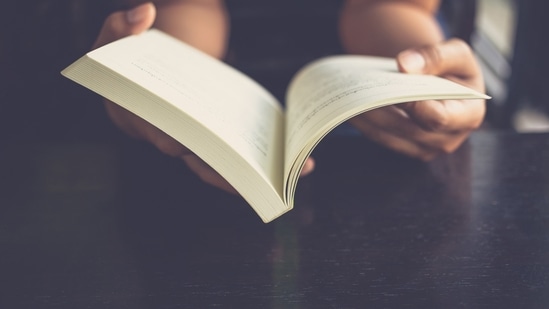Access to knowledge is a right, not a privilege
This article is authored by Preedip Balaji, senior consultant, Indian Institute for Human Settlements, Bengaluru.
Growing up, not everyone had the opportunity to explore public libraries, learning centres or cultural institutions where books were readily available, discussions were hosted, and reading sessions were organised. Many relied solely on school textbooks, not by choice, but due to a lack of accessible resources. This points to a critical issue: The accessibility of public libraries and learning resources, the lack of which is a significant barrier to literacy and lifelong learning.

The evolution of India’s public libraries has roots in the country’s historical quest for literacy, mirroring the parallel movements towards independence in the early 20th century. Visionaries like Maharaja Sayajirao Gaekwad III, who established the public library system in erstwhile Baroda, SR Ranganathan, who drafted a dozen public library bills for various states, PN Panicker in Kerala, who promoted literacy and education, Iyyanki Venkata Ramanayya, who spearheaded public library establishment in Andhra Pradesh, and Motibhai Amin in Gujarat, played pivotal roles and significantly shaped the landscape of public libraries across the country.
Despite legislative efforts in 19 states and Union Territories (UTs) to establish dedicated public library authorities which serve local needs and fund services, there has not been much progress in digital inclusion, adapting Sustainable Development Goals (SDGs), local funding of libraries, and integrating citizen services. This includes revising the library cess to adapt to contemporary needs, expanding coverage to reach more people, decentralising local government services, improving capacity-building initiatives, and ensuring sufficient infrastructure.
Some states are making notable strides in addressing these challenges. The government of Tamil Nadu is building 100 libraries and reading centres in hospitals and transport hubs, in addition to the existing 4,660 libraries under the Madras Public Libraries Act, 1950. Further, the government has announced new public libraries in Coimbatore and Trichy. Similarly, Karnataka’s revitalisation of Gram Panchayat Library and Information Centres shows the potential for community engagement and infrastructure improvement, with 5,623 rural libraries overseen by the rural development and panchayat raj department. These initiatives involve integrating institutions, collections, and services effectively to meet evolving demands. Although the education, arts, sports, youth affairs, and culture departments primarily oversee state affairs for offering public library services in many regions, several states lag in adequately funding public libraries to adapt to evolving neighbourhood demographics and dynamics.
The deficiency within public library departments under state legislations arises from the failure of local governments to efficiently collect library taxes and allocate funds. Securing lasting funding and self-governing operations for public libraries, free from political pressures and attuned to readers’ needs remains crucial. However, the struggle persists in recognising library services as essential statutory elements, mirroring challenges faced by other municipal services in expanding urban and suburban environments.
The funding provision for public libraries remains significantly inadequate. For instance, Maharashtra allotted only ₹140 crore for the fiscal year 2021-22, subject to annual government discretion, lacking the compulsory collection of library cess as per The Maharashtra Public Libraries Act, 1967. In contrast, states like Tamil Nadu, Andhra Pradesh, Telangana, Karnataka, Kerala, and Goa enforce a library tax, collected mandatorily from local governments and integrated into education budgets to support public library services, even though tax rates are not uniform, ranging from 1.67 to 10%. Moreover, 17 states and UTs lack public laws governing public libraries, reflecting like those in other areas of human development such as healthcare, education, and overall quality of life.
The absence of per capita expenditure data for investment in public libraries in India hampers efforts to determine the number of operational libraries, their distribution, and availability in underrepresented and underserved communities. This impedes the identification of areas most in need and addressing gaps in service provision.
The Smart Cities Mission (2015-2024) offered an opportunity to include public libraries in urban planning and revitalisation efforts through 27 library projects in 12 cities. However, their establishment should not rely on ad hoc measures but be integrated with existing laws and have a sustainable framework to ensure they function as autonomous institutions.
It is worth asking why public libraries are not included in the ‘One Nation, One Subscription’ initiative, which aims to provide shared access to educational resources for a broad segment of taxpayers while lowering costs for multiple libraries. A national licence for digital resources could help bridge the digital divide among the public, reaching a wider audience beyond just academic users, and supporting skills development, lifelong learning, digital literacy, and inclusion.
To bring public libraries into the 21st century requires a comprehensive national policy that outlines strategies for library services, community outreach, and development. This policy should emphasise the importance of libraries as essential services for supporting strong democracies. National-level support is crucial to enforce public library laws, made possible by a national model public act that sets minimum standards for states to create a network of libraries at the state, district, and town levels, ensuring broad access to library services, reading materials, and learning resources. Additionally, a national licence for electronic resources should include public libraries, giving the public access to e-books, scholarly literature, and children’s books, thereby enhancing library services and resource sharing for all citizens.
Public libraries symbolise freedom of expression, champions of diversity, inclusion, and equity for all individuals, and crucial public assets for informed citizens. In times of geopolitical complexities, political turbulence, and information overload, public libraries offer refuge. Whether a curious child, a youth seeking career guidance, or an elderly person reading for pleasure, libraries provide a sanctuary for all. As we look to the future, let us ensure that the next generation can fondly recall growing up with accessible libraries. Libraries should not be marginalised; they are the bedrock of democracy, guaranteeing mainstream access to knowledge for all. When uncertainty strikes, find solace in the timeless wisdom of library shelves.
This article is authored by Preedip Balaji, senior consultant, Indian Institute for Human Settlements, Bengaluru.





